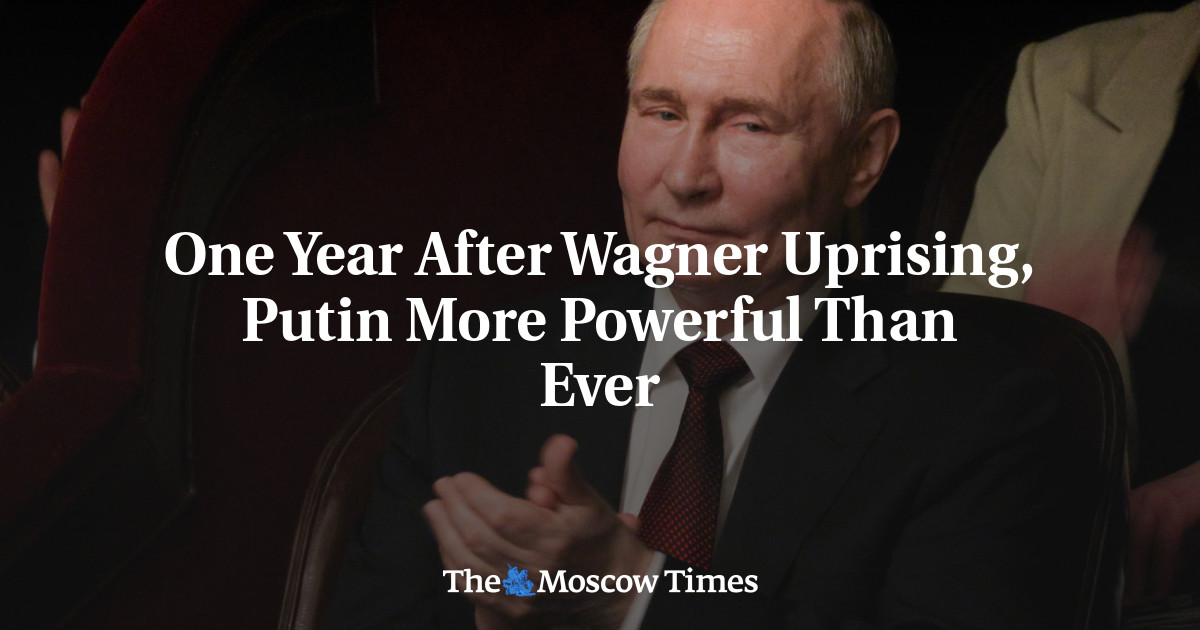
The president has ordered sweeping changes to the country’s military establishment in recent weeks — ironically, one of Prigozhin’s pre-mutiny demands.
Defense Minister Sergei Shoigu was removed and several senior military figures have been arrested on corruption charges.
Putin installed technocratic economist Andrei Belousov as his new defense chief, rather than a military strongman — again avoiding “any influential leader” who could promote the army’s interests at the very top, according to Petrov.
The reshuffle marked a turnaround from a year ago, when Putin backed his defense chiefs in the face of Prigozhin’s accusations of rampant corruption, strategic ineptitude and of having botched the Ukraine invasion.
The key difference was Putin had ordered the shake-up out of necessity, not political pressure.
“The fact that he’s able to take these steps and challenge the interests and livelihood of senior military figures is a mark of his strength, rather than his weakness,” said Nigel Gould-Davies, senior fellow for Russia and Eurasia at the International Institute for Strategic Studies.
‘Dominance’
Putin also demonstrated his power with an 87% landslide victory in the March presidential elections, devoid of any real opposition and panned by international observers.
The vote showed Putin could “concoct anything he wants and force the population to accept it,” Gould-Davies said.
“It’s an expression of his dominance and power that he can get away with this, rather than the official, published outcome in any way reflecting real support.”
Putin’s huge claimed majority was also deliberate, Petrov said.
The result was “symbolic”: the exaggerated margin of victory was not because Putin “likes to get as many votes as possible,” but rather he had to show that his popularity was “much higher than before the war,” Petrov told AFP.
Putin’s only real political rival, Alexei Navalny, died in an Arctic prison colony in February while serving a 19-year sentence, further cementing his power.
“Taken together with other repressive measures and exemplary prison sentences that have been imposed on other people, he has intimidated and cowed and frightened a large portion of the population now,” Gould-Davies said.
This does not mean support for the Kremlin runs deep, he cautioned.
During the June 23-24, 2023, uprising, former President Dmitry Medvedev warned against Russia’s nuclear arsenal falling into the hands of “bandits” and other regional officials issued tepid statements urging calm.
But there was no widespread defiance or public outpouring of support for Putin.
Pictures from the southern city of Rostov-on-Don showed residents smiling, cheering and taking selfies with Prigozhin and his Wagner men amid the rebellion.
Both the popular and elite response to the uprising showed there was little authentic enthusiasm for Putin or the war, Gould-Davies said.
“Most people just want to keep their head down, and for the war and regime not to touch them.”